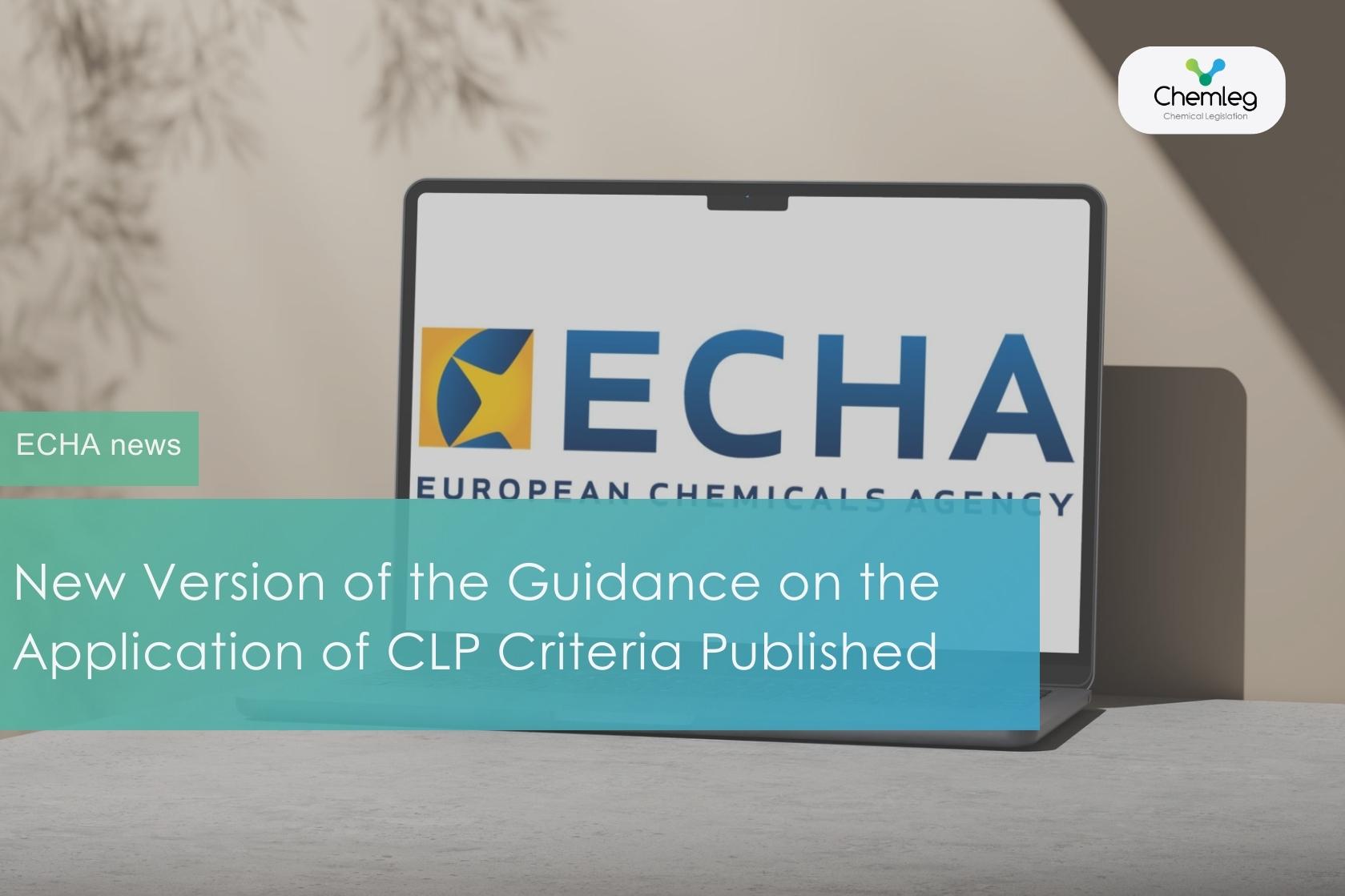
New Version of the Guidance on the Application of CLP Criteria Has Been Published
ECHA Has Published the New Version of the Guidance on the Application of CLP Criteria
On November 13, 2024, ECHA published the new version of Guidance on the Application of the Classification, Labelling and Packaging of substances and mixtures (CLP) Criteria on its official website. This guidance aims to advance the protection of human health and the environment and to enhance chemical safety.
On November 21, 2024, a webinar was held by ECHA, during which the new CLP hazard classifications and transitional periods were discussed, including information about ED HH, ED ENV, PBT/vPvB, and PMT/vPvM.
New Hazard Classifications Under CLP
The new hazard classifications under CLP are as follows:
- New criteria for endocrine disruptors (ED) have been introduced, divided into two categories: ED for human health (ED HH) and ED for the environment (ED ENV). Subcategories include EDs Cat 1 (known/presumed) and Cat 2 (suspected).
- There are no subcategories for Persistent, Bioaccumulative, and Toxic (PBT),or very Persistent, very Bioaccumulative (vPvB).
- Similarly, no subcategories exist for Persistent, Mobile, and Toxic (PMT), or very Persistent, very Mobile (vPvM).
The new hazard statements are presented in the following table:
|
Hazard Class and Category Code |
Hazard Statement Code |
Hazard Statement |
|
ED HH 1 |
EUH380 |
May cause endocrine disruption in humans |
|
ED HH 2 |
EUH381 |
Suspected of causing endocrine disruption in humans |
|
ED ENV 1 |
EUH430 |
May cause endocrine disruption in the environment |
|
ED ENV 2 |
EUH431 |
Suspected of causing endocrine disruption in the environment |
|
PBT |
EUH440 |
Accumulates in living organisms including in humans |
|
vPvB |
EUH441 |
Strongly accumulates in living organisms including in humans |
|
PMT |
EUH450 |
Can cause long-lasting and diffuse contamination of water resources |
|
vPvM |
EUH451 |
Can cause very long-lasting and diffuse contamination of water resources |
It should be noted that there are currently no pictograms available for these hazard classes. ECHA has stated that further updates will be made in the future.
Transitional Periods
The transitional periods for substances and mixtures covered by new hazard and labelling decisions are specified by ECHA as follows:
What Should Companies Do?
Companies are advised to plan their workflows while considering the transitional periods and start classifying their relevant substances and mixtures. Using the newly published guidance by ECHA will be beneficial in this regard.
Those seeking more detailed information can participate in workshops to be organized by ECHA in 2025 or review the new version of the Guidance on the Application of CLP Criteria.
You can contact us to get answers to your questions on the subject, and you can also benefit from our SEA (CLP) compliance service.
